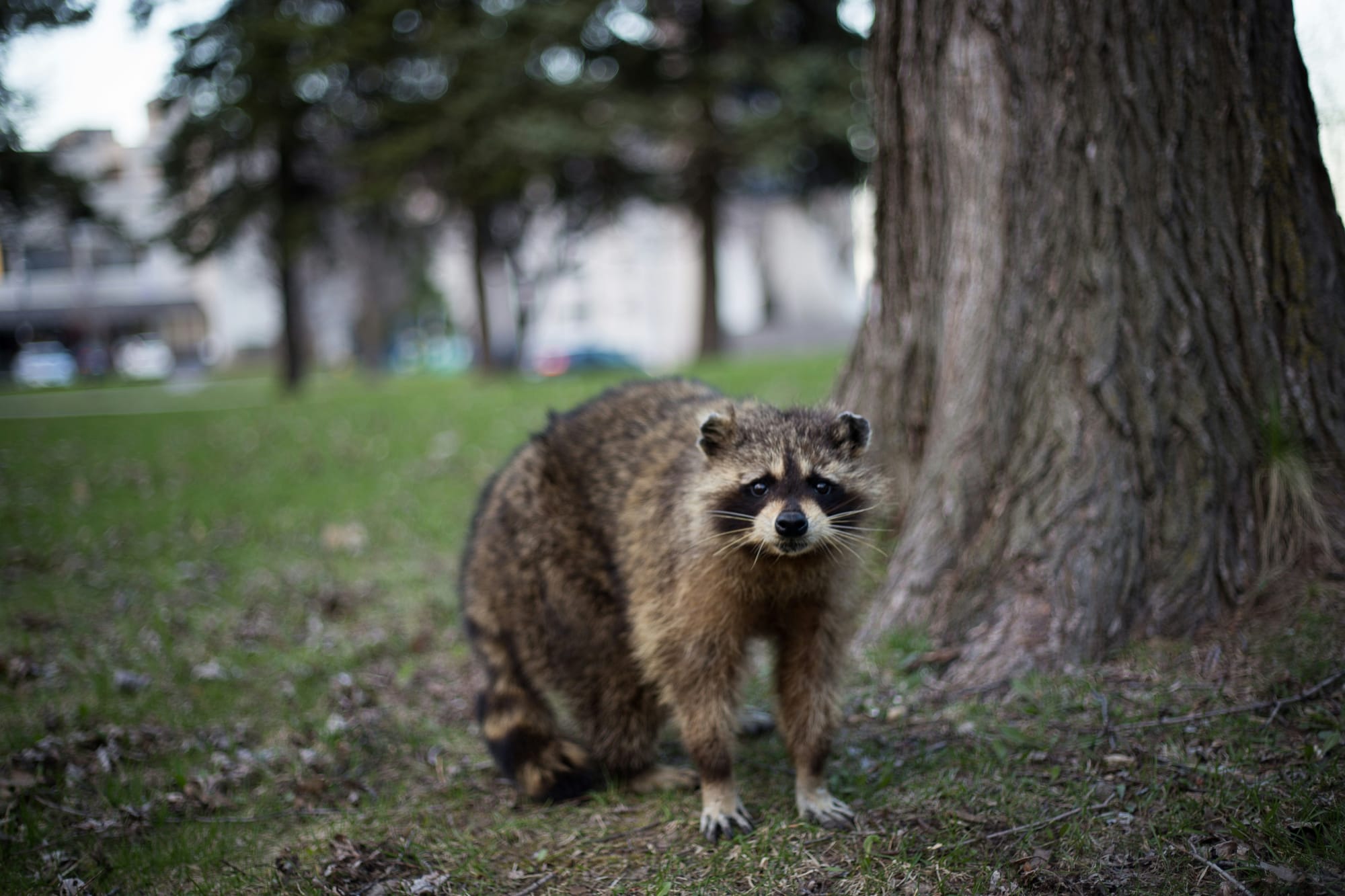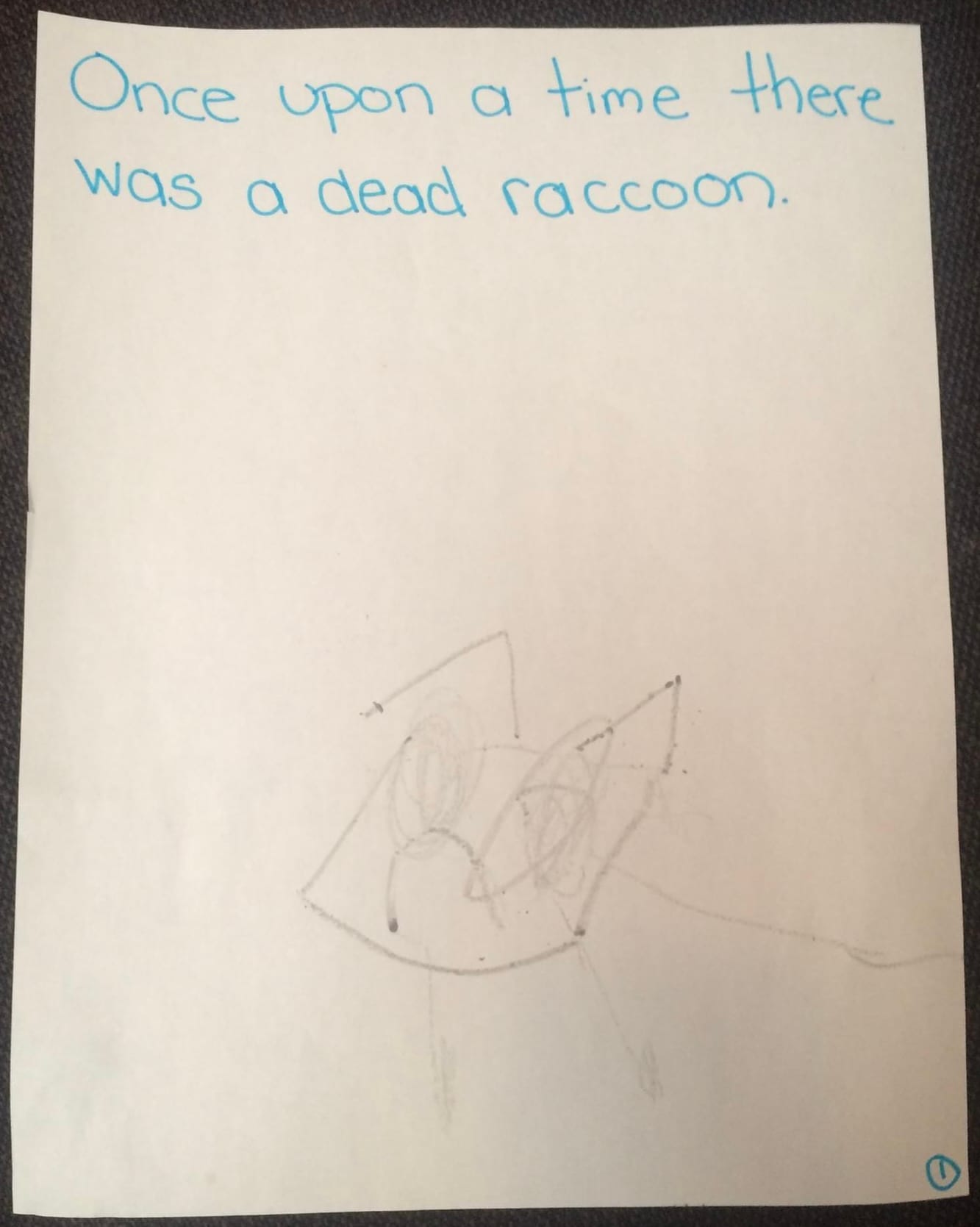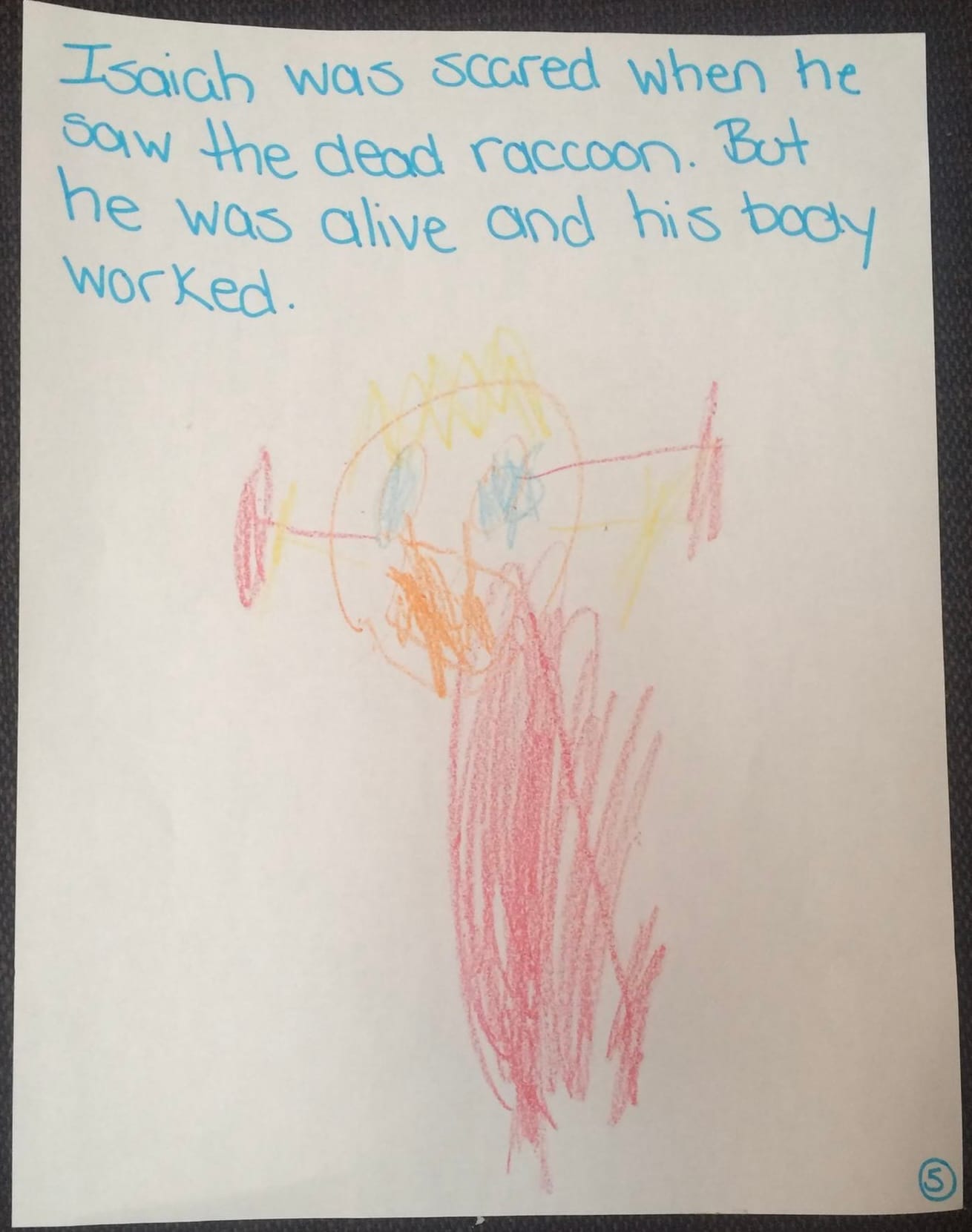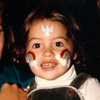“Kiss it Better, Mama.”
What do a dead raccoon and Jesus have in common? A toddler learns about death and that Mama can't fix everything on her own.

We are a people of story, and perhaps Holy Week ,of all weeks, the power of our stories becomes very clear.
However, before we get into that story, first I need to tell you this story.
It’s a story that begins on the very first nice day of spring. My older son, Isaiah, was three years old. My younger son was one.
It was a beautiful day. A stunning day. Winter was over and it was time to celebrate. So, I piled both kids into our double stroller and set out for a long walk towards the lake in search of ice cream. These were the kind of excursions we lived for: ice cream and time at the park.
A few blocks from our house, we started to come across something large, fuzzy, and very, very still. As we got closer, I realized it was a raccoon — and it was very dead.
I am always sad when I see dead animals on the side of the road. Had I been walking by myself, I would have probably done something. Called the City of Toronto to have them come and remove it. Find something to move the poor thing to a place with less foot traffic.
But I wasn’t alone, and so my first instinct was to turn around, or to cross the road, so Isaiah and Simon didn’t have to see the carnage.
But before I could do that, I heard Isaiah’s sweet little voice speak up, “Look Mama! That raccoon is sleeping on the sidewalk! Shhh! Don’t wake her up!”
Now, it was fairly obvious that this raccoon had met…a violent end. And I could have left it. I could have just said, ‘Yup, funny that!’ and gone on with our day. But I thought about our old man cat, whom probably only had a few years left with us. I thought of my father who had only recently been diagnosed with prostate cancer, and we were waiting to hear about his prognosis. And then I thought perhaps having a conversation about a dead raccoon would be the gentlest entry into a conversation about loss I could possibly hope to have. Better a dead raccoon than our beloved family pet, or grandparent.
And so, I took a deep breath:
“Isaiah, honey. That raccoon is not sleeping.
That raccoon is dead.”
Isaiah was quiet for a moment, pondering this. He had watched movies before where characters died — in fact, it seems every Disney movie features an orphan or two. But for Isaiah, the solution to all of this was really quite simple:
“Kiss her better.”
“Pardon me?”
“Just kiss her better, Mama. Like you do with me.”
And staring at that bleeding, broken raccoon, my heart cracked right then and there. Because of course, no matter how powerful and how healing my kisses are, I cannot fix a dead raccoon.
“Honey, that raccoon is dead.
And dead is forever.”
We went over what happens when people and animals die; their heart stops beating, their lungs stop breathing, and their body stops moving. Isaiah was concerned. Together we felt his heart, his lungs and his body. He did a little dance. We assured ourselves that he was, indeed, alive. And then we did the same with me. This was all developmentally appropriate stuff, but it wasn’t lost on me how a celebration of ice cream on the beach had suddenly shifted to something far deeper.
However, he still didn’t understand why I wouldn’t kiss the raccoon. Why I wouldn’t at least try.
I finally had to tell him that Mama’s kisses can’t fix everything. Mama’s kisses can’t fix dead.
And that, I think, was the hardest part of the whole scene. Understanding dead is forever is one thing. Suddenly being confronted that there are just some things Mama can’t fix on her own — that is where the heartbreak lived.
We start our Holy Week with a celebration. We start with a parade, palm branches, and singing. Jesus enters Jerusalem like a rock star. Possibly, he’s entering Jerusalem at the same time Pilate is returning to the city with his own parade. However, if Pilate is also in town, his parade is a demonstration of might. Of Imperial strength. Jesus enters with the hopes and dreams of his people paving the path before him.
But a lot of things will happen over the next few days.
Judas will betray his friend.
The religious elite — some of whom have actually been trying to protect Jesus — will become nervous.
Jesus, and the crowds who surround him, will become too dangerous.
So, in keeping with the circumstances, context, and time, the end result — is torture and execution at the hands of the Roman state. A bleeding and broken man, hanging from a cross. The cross. It is the crux of our story and Christians have spent almost 2000 years trying to work out the meaning of it all.
Isaiah spent months — literally MONTHS — working out his feelings about this dead raccoon experience. One day, we went to the public library and he asked if he could take home a book about raccoons. We couldn’t find any, so we asked the library worker for help. When she found a book, Isaiah looked at it and asked, “Is this a book about alive raccoons?” When the library worker looked puzzled he clarified,
“Because I really need a book about dead raccoons.”
So deep and honest was his three-year-old desire to make sense of what was completely outside his conceptual framework. How is it possible that my Mama, who has always made everything better with a hug, or a kiss, or a tickle, cannot fix this raccoon?
How is it possible that a God whose Chosen People are aching, can send their Anointed One not to vanquish, but to a brutal and shameful death?
Within my congregation, throughout the Season of Lent we’ve reflected on Journeys of Change. We’ve created this communal art piece together, the paint and the images resonating with pieces of us. We started with a blank canvas a visual map and record of the season. We are coming to the end. Holy Week.
In preparation for this week, I started to go through the many books in my house that hold the different interpretations of what this scandalous end means. There are just too many different understandings to name here. So many books. Books written by authors who believe that the world, and everybody in it, was so bad, that God needed somebody to die in order to pay for it all. Books by authors who believe that we had a man and a God with so much love and truth to impart that those in power felt threatened — and so they killed him. With two ministers sharing one house and more than a few retiring clergy friends, we have rather a lot of books. More books than we have shelf space for. So many authors writing so many books, trying to make sense of the death of this one man.
But then I found this book:
It starts out, “Once upon a time, there was a dead raccoon…”


Pages from "Once Upon a Time, There Was a Dead Raccoon" by Isaiah.
And I was reminded of that conversation 9 years ago, and how much Isaiah had to work through, and how part of working it out for him was writing about it. He wrote an entire series of stories trying to make sense of the death of this one raccoon. Before I sang him a lullaby at night, together we would make up stories about raccoons. Sometimes they were alive. Sometimes they weren’t.
The whole thing moved him that much. The raccoon was killed. She didn’t do anything wrong, but the world killed her anyway. It wasn’t right. It wasn’t fair. It must have really hurt. And Mama couldn’t make it better. So, he wrote about it. To make sense of it. The Gospel according to Isaiah.
Now, I’m willing to wager that most you know this is not where our story ends. I’m hoping next week’s reflection will not be titled, “ROADKILL AND THE RESURRECTION”.
But this is where we leave things for now. Jesus doesn’t do anything wrong, and the world kills him anyway. It isn’t right. It isn’t fair. It must really hurt. And his Mama, holy or otherwise, can’t make it better.
At least, not in the way his friends want or expect.
Rev. Bri-anne Swan is lead minister to East End United Regional Ministry in Toronto, Canada.

